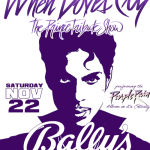Too Good to Be True? How to Be Sure If That Offer Is Actually Real
Every day, consumers are faced with offers that are too good to be true. Ads promise free luxury vacations and electronics at huge discounts. These deals fly through social media, emails, and even paid content that may not seem questionable at all.
Experts say online scams are getting more and more complex. Fraudulent websites are now designed to look like and sound like trusted companies, and it is often difficult for the user to recognize the difference.
Source: Pixabay
The Emergence of Online Promotions and How to Validate Their Legitimacy
Online offers have become a significant part of the economy. Every season brings a slew of new promotions, from online stores announcing flash sales and influencer-led giveaways to subscription platforms offering free trials and loyalty rewards. Most of them are legitimate marketing campaigns that are used to attract customers, but there are also those that are made specifically for the purpose of scamming, with fake discounts and prize promotions just used as an excuse to try to collect personal information.
Raffles are a part of this seasonal cycle. Most of them are run by community groups or reliable sites and promise attractive prizes, such as exotic holidays, cash winnings, or even cars. While these opportunities are becoming more and more popular, they can be more or less reliable.
Only legitimate online raffles have clear procedures in place to ensure that the rules of participation are transparent, the raffle is fair, and prizes are actually awarded (source: https://realraffle.com/). That openness is important in fostering trust and making participants feel secure about where they’re entering.
Staying alert is the best way to enjoy these opportunities safely. Understanding how to keep your payment details secure, how to recognize trustworthy websites, and how to avoid impulse clicks can make online shopping and participation in seasonal offers much safer and more relaxed.
Red Flags That an Offer Is Likely to Be Fake
It is not easy to recognize a scam, as fraudulent campaigns often have professional designs and convincing text. Yet, there are several warning signs that are common to the majority of fake offers.
The first indicator is a sense of urgency. Emotional appeals, such as telling users to take action immediately or claiming that an offer is limited to a few hours, are ways of creating pressure. Legitimate promotions provide time for verification and careful decision-making.
Another clear indicator is poor communication. Many spurious emails or ads contain grammatical errors, awkward wording, or inconsistent branding. Responsible companies always communicate clearly, accurately, and professionally.
Requests for personal or financial information are also a concern. Authentic businesses never request credit card numbers, identification details, or bank access before determining eligibility. Often, scammers use these requests to gather information or add hidden fees.
Online deals should be approached with caution, consumer protection experts say. Cross-checking company names, reading official terms, and avoiding payments before receiving confirmation are all important practices to prevent financial loss.
Real Examples of Known Good Working Offers
Not all online promotions conceal a scam. There are still many authentic campaigns run by established brands that build customer trust and reward participation. Verified giveaways by major technology and retail companies often include public announcements, easy-to-understand participation rules, and visible proof of delivery.
Crowdfunding campaigns are also good examples of fair offers. Supporters who contribute to verified projects often receive early access deals, discount codes, or exclusive merchandise. Transparency is an important part of this process, as project details, team information, and delivery timelines are all openly available.
Examples of legitimate online promotions include:
- Amazon Prime Day Deals – seasonal discounts offered directly through Amazon’s verified platform.
- Starbucks Rewards Promotions – loyalty-based giveaways and limited-time offers through the official Starbucks app.
- Kickstarter Projects – verified campaigns like Pebble Smartwatch or Coolest Cooler, which publicly share goals, updates, and shipping timelines.
How to Protect Yourself When Looking at an Offer
Consumers are urged to be cautious when responding to any online offer and to verify its authenticity before engaging. Independent reviews are a great source of information about a company’s reliability.
Information shared by users on forums, public threads, or social media often reveals patterns that official websites may not disclose. In other words, multiple sources of feedback provide a better idea of whether an offer is trustworthy.
Another important factor is website security. Legitimate platforms use secure “https” connections and list contact information that works. An unlisted address, inactive email, or disconnected phone number should be a cause for immediate concern. Cybersecurity experts say that transparency and accessibility are still basic requirements for any credible business online.

Support Local Journalism

Support Local Journalism
Readers around the Lake Tahoe Basin and beyond make the Tahoe Tribune's work possible. Your financial contribution supports our efforts to deliver quality, locally relevant journalism.
Now more than ever, your support is critical to help us keep our community informed about the evolving coronavirus pandemic and the impact it is having locally. Every contribution, however large or small, will make a difference.
Your donation will help us continue to cover COVID-19 and our other vital local news.









